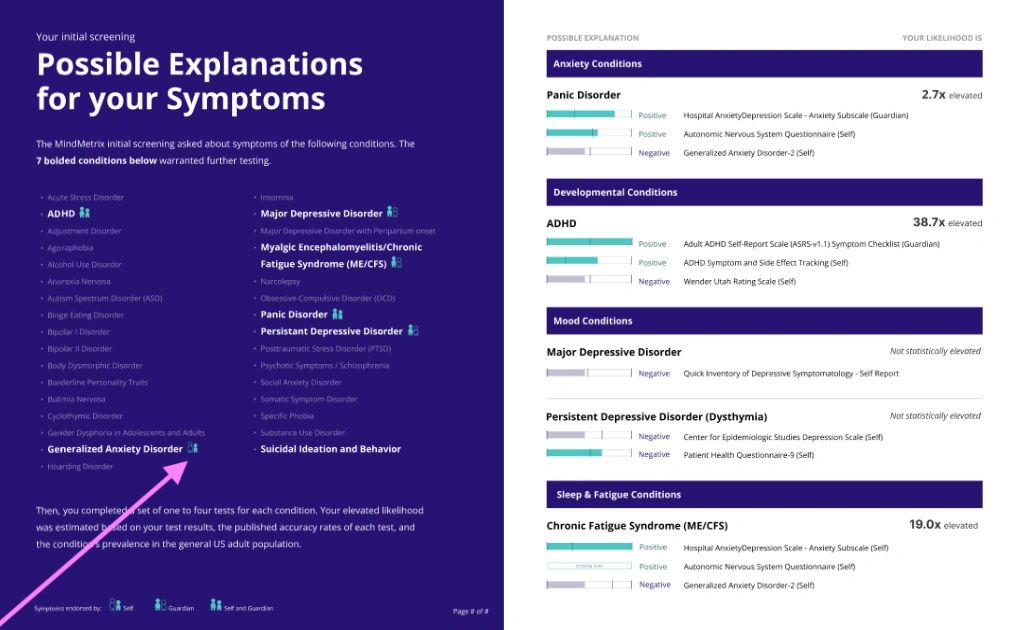The MindMetrix Updates You Asked For Are Here

New report features that save time, reduce friction, and improve diagnostic clarity
June 16, 2025
At MindMetrix, we’re constantly listening to your feedback—and we’re building the features you’ve asked for. These updates are designed to streamline your workflow, support clear clinical conversations, and help you get to the heart of each case faster.
Here’s what’s new (and what’s coming soon)!
Key Scores, front and center
Gone are the days of flipping between pages to reference scale scores mid-session. Now, your summary page includes the most important scores right up front—so you can review, interpret, and explain with ease.
Need to go deeper? Just click the condition name (like Agoraphobia) on the summary page to jump directly to the full details within the report—and vice versa. It’s seamless, intuitive, and built for busy clinicians.
Parent vs. teen: Now clear at a glance
Adolescent cases often require navigating multiple perspectives. That’s why we’ve enhanced our adolescent summary pages with quick icons that show whether the teen, parent, or both endorsed a condition during the initial symptom screen. We’ve also included those icons next to each rating scale—so you can easily identify agreement (or disagreement) and tailor your clinical conversations accordingly.
A better read on ADHD in women
In response to both data and clinician input, we’ve switched from the 53-item to the 25-item Wender Utah Rating Scale (WURS) for ADHD evaluation. This isn’t just about brevity—it’s about accuracy and equity.
Our internal analysis showed the 25-item version is more sensitive to ADHD in women, who were sometimes under-identified by the longer version despite meeting clinical thresholds. By making this change, we’re ensuring a stronger signal with less burden—and a more equitable path to diagnosis for female patients.
Coming soon: Screening for response integrity
Soon, MindMetrix will include a new scale to help detect cases where ADHD symptoms may be exaggerated or inconsistently reported. While most patients are sincere, this additional layer adds clinical confidence and helps you navigate complex presentations with greater precision.
See the updates in action
These updates are here because you asked for them. No fluff, just features that make a difference. Send an assessment today explore the improvements for yourself.
Ready to boost your practice?
Try 3 complimentary assessments on us.

